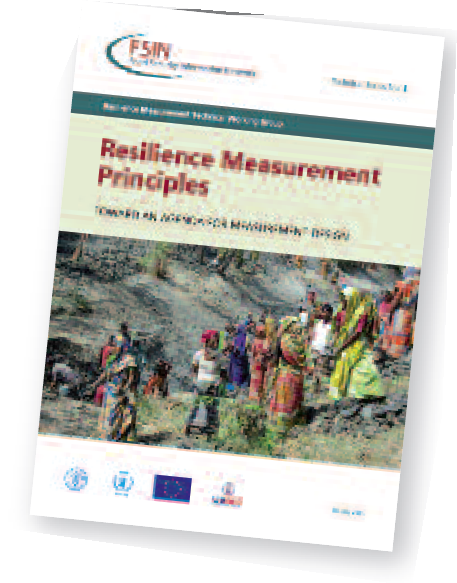Resilience measurement principles - FSIN Technical Series No. 1
 There is now wide agreement that the interactions among climate change trends, ecosystem fragility and geo-political instability have produced a new range of risks that are increasingly difficult to predict. Resilience, viewed by many as a way to deal with a range of unpredictable risks that undermine well-being, has recently emerged as a key concept for policy and programme development.
There is now wide agreement that the interactions among climate change trends, ecosystem fragility and geo-political instability have produced a new range of risks that are increasingly difficult to predict. Resilience, viewed by many as a way to deal with a range of unpredictable risks that undermine well-being, has recently emerged as a key concept for policy and programme development.
While several papers and policy statements have been released and a wide range of funded initiatives have been launched, there has been limited focus on measurement. To address this, a three-day Expert Consultation on Resilience Measurement for Food Security was held in Rome, Italy (February 19-21, 2013). The meeting, which brought together policy makers, programme staff, researchers, and leaders from various agencies and organizations, provided an opportunity to share initial findings and raise questions about resilience measurement. One of the main outcomes of the meeting was the formation of a Technical Working Group to lead the development of a common analytical framework and technical guidelines for resilience measurement.
A technical paper has been produced as an initial step toward the development of resilience measurement design for use by stakeholders (e.g. programme staff, monitoring and evaluation, policy makers). It outlines:
- A definition of resilience
- A series of measurement design principles
- General technical guidelines for Resilience Measurement commonly used to promote rigor in all measurement approaches
- A set of substantive issues and analytical concerns
This FSIN Technical Series No.1 is the first of three papers that will be issued over the course of the next year.
For more information visit the Food Security Cluster website: http://foodsecuritycluster.net/document/fsin-paper-seriesno1-resilience-measurement-principles

